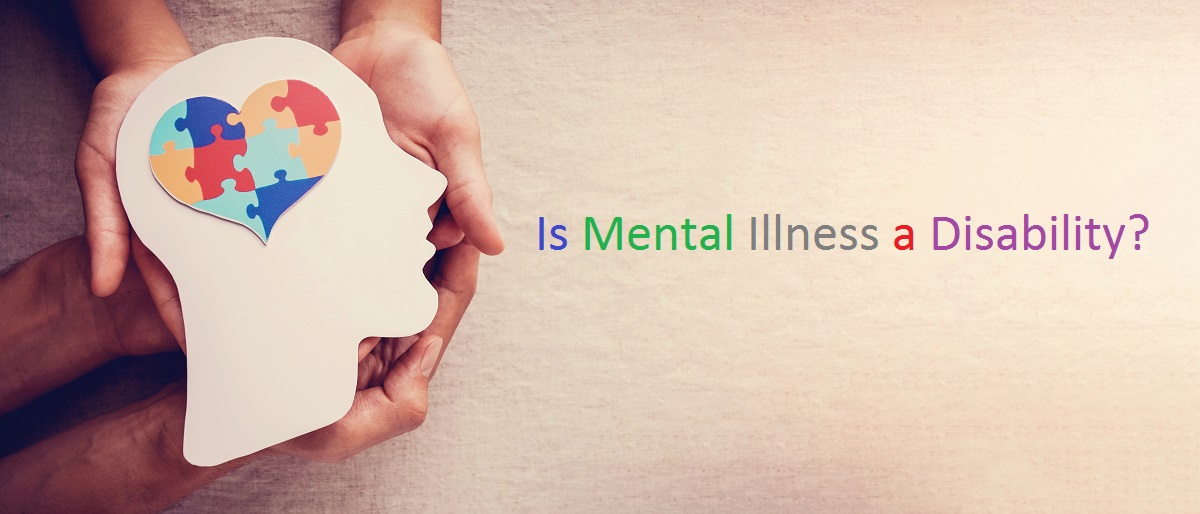Can Mental Health Disorders Be Classified As A Disability In Australia?

Over the last few years, we’ve made some pretty good progress when it comes to discussing mental health. People are now feeling much more empowered to discuss mental health issues, whether they be public figures with large platforms, or ordinary people in their own personal lives. This has really helped to break down some of the stigmas that had previously been associated with mental health conditions.
While this growing acceptance of mental health as a normal, everyday concern is overwhelmingly a good thing, it does raise questions about which conditions are categorised as disability, and which aren’t. And with NDIS being such an important safety net for many people with disability to rely on, it’s important to know if a mental disorder qualifies you for financial support.
So, Is Mental Illness a Disability?
As we’ve alluded to, it depends on a few factors, including the diagnosis, your personal circumstances, and how severely your diagnosis affects your ability to participate in daily life. Once a mental health problem becomes severe enough that it has a significant impact on your life, it is then considered to be a psychosocial disability.
Mental health diagnoses that can potentially fall into the category of psychosocial disability may include:
- Bipolar disorder
- Obsessive-compulsive disorder
- Anxiety disorders
- Personality disorders
- Psychotic disorders
- Major depressive disorder
- Autism spectrum disorder
- Impulse-control disorders
- Substance use disorder
As mentioned, any of these diagnoses is not necessarily enough by itself to be considered a psychosocial disability. In order to be eligible for funding through the NDIS, a psychosocial disability assessment must be carried out.
What Is a Psychosocial Disability Assessment?

This assessment is carried out through consultation with a mental health professional. It looks at your mental health diagnosis and your social life as a whole. This kind of holistic approach helps to determine what impact your mental health diagnosis has on your ability to engage with your community as well as participate in daily activities such as work, self-care, shopping and other aspects of everyday life.
As well as being used to determine if your mental health diagnosis qualifies as a psychosocial disability, these functional assessments also seek to improve your care and help you achieve your health and social goals.
What Does a Psychosocial Assessment Involve?

It starts with a consultation with a qualified clinician, followed by a series of tests based on the World Health Organisation disability assessment schedule’s six functional domains. These are:
- Ability to communicate verbally, or through text or sign language
- Ability to learn and remember new information, and use that information practically
- Mobility and motor function
- Self-care, including hygiene, grooming, feeding oneself, and health care.
- Your capacity to self manage your life and take responsibility for you decisions
- Your ability for social interaction, and to deal with feelings and emotions in a social setting, such as making friends, connecting with others, and acting within acceptable limits towards others
Ascertaining this information will usually involve an interview with a psychologist. This will help the clinician learn about your condition, your social circumstances, your background, your coping strategies and prescribed medication.
It will then involve a psychological examination. This is where physical symptoms, stress levels and behaviours are examined to determine how you are impacted by your diagnosis.
Finally, you’ll undergo a cognitive evaluation to determine how your diagnosis may be affecting your cognitive abilities. A psychologist will ask a series of questions and ask you to carry out some simple tasks to determine your focus, memory and attention capabilities.
At the end of all this, the psychologist will be able to determine how much of an impact your diagnosis is having on your life, if it qualifies as a psychosocial disability and what disability services you may be eligible for.
To read about in more depth, please read our previous blog: What Is A Psychosocial Disability Assessment.
Psychosocial Recovery Coaching
Psychosocial recovery coaching is an NDIS supported service that offers a hands-on approach to capacity building.
A psychosocial recovery coach can work with you on a one-on-one basis to empower you to improve your coping mechanisms and your decision making skills. By helping you to build your personal capacity, you will be more confident in taking control of your mental health which will therefore help you live a more enriched and fulfilling life.
Not only does a recovery coach conduct their own therapy sessions, they can also connect you with other services and supports to aid in your recovery journey. Therefore, a psychosocial recovery coach undertakes an element of support coordination as part of their role as well.
Support For Psychosocial Disability at St Jude’s

St Jude’s disability services is a registered NDIS provider, which means we can help you to find the best psychosocial recovery coach for you. With 40 years in the industry, we are best placed to team you up with the best support services, so get in touch with us to find out more.
|
|


